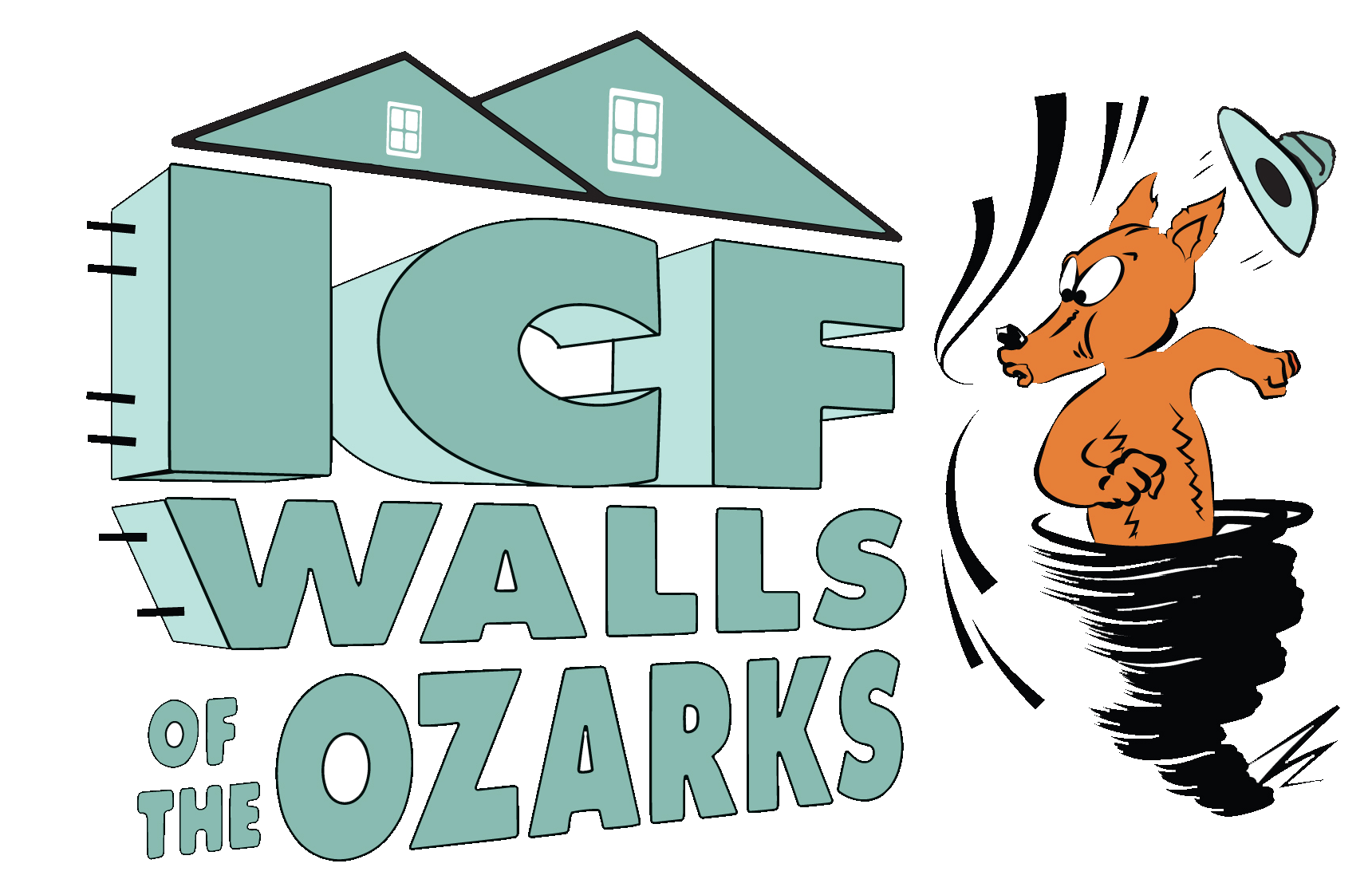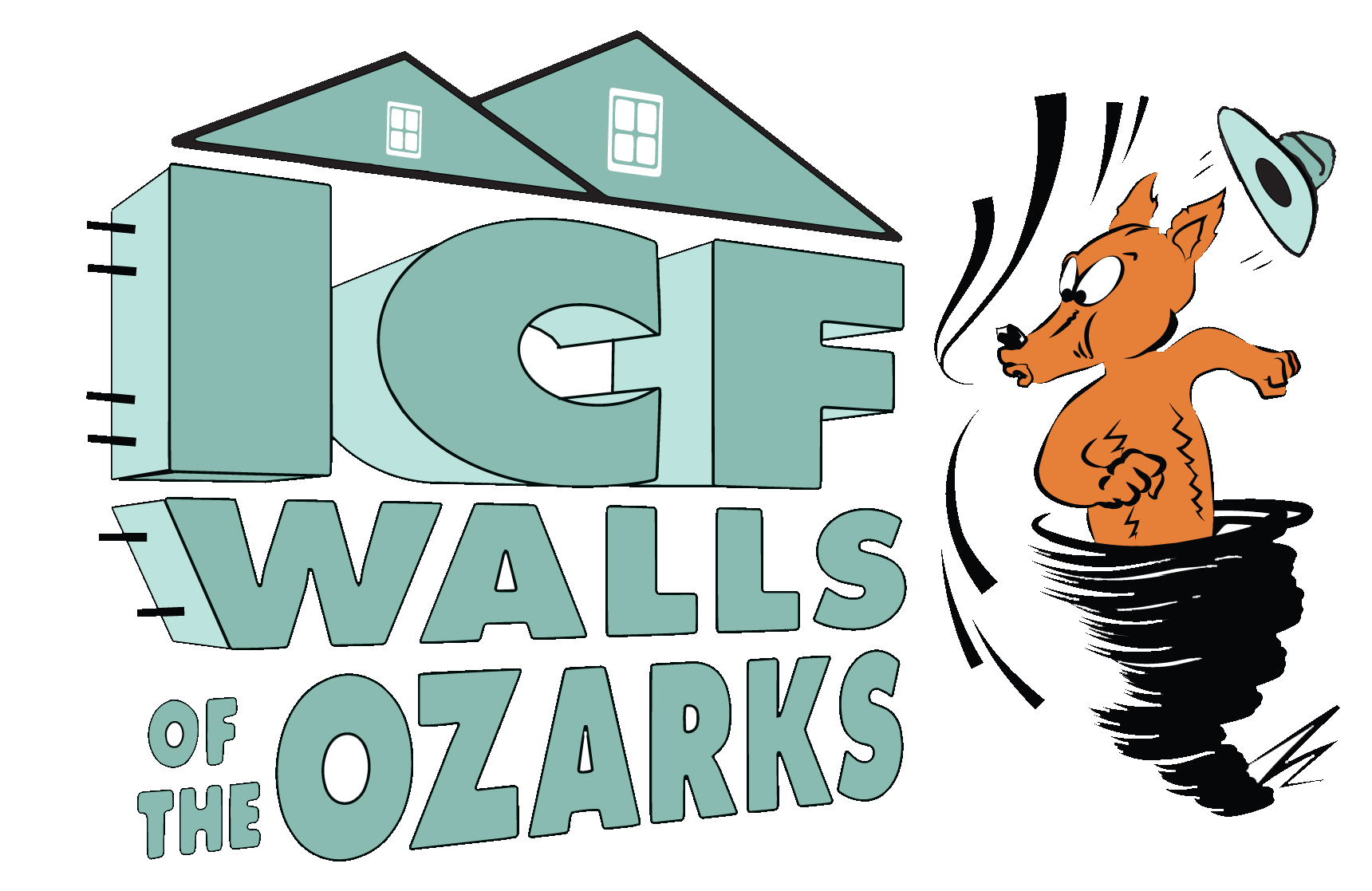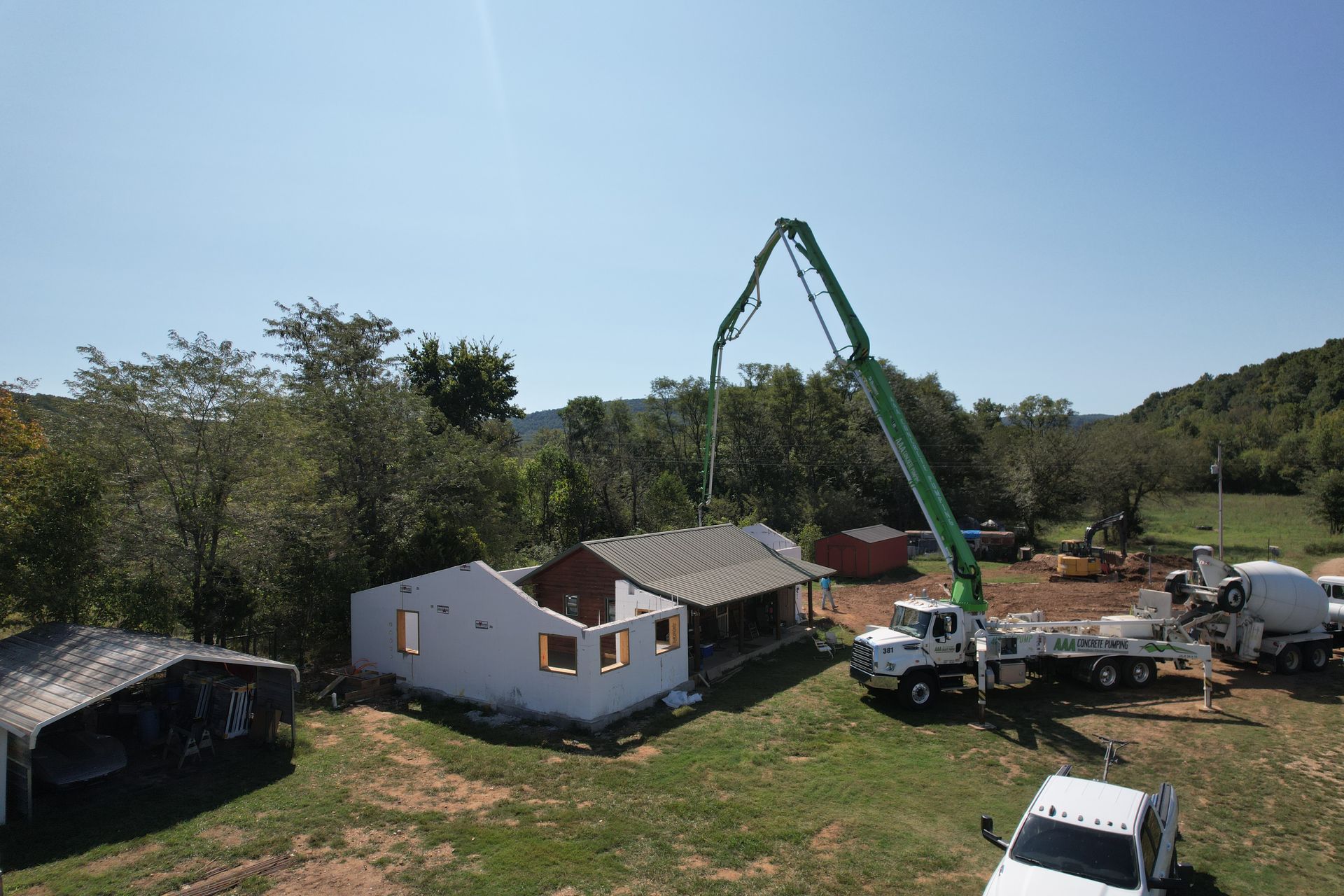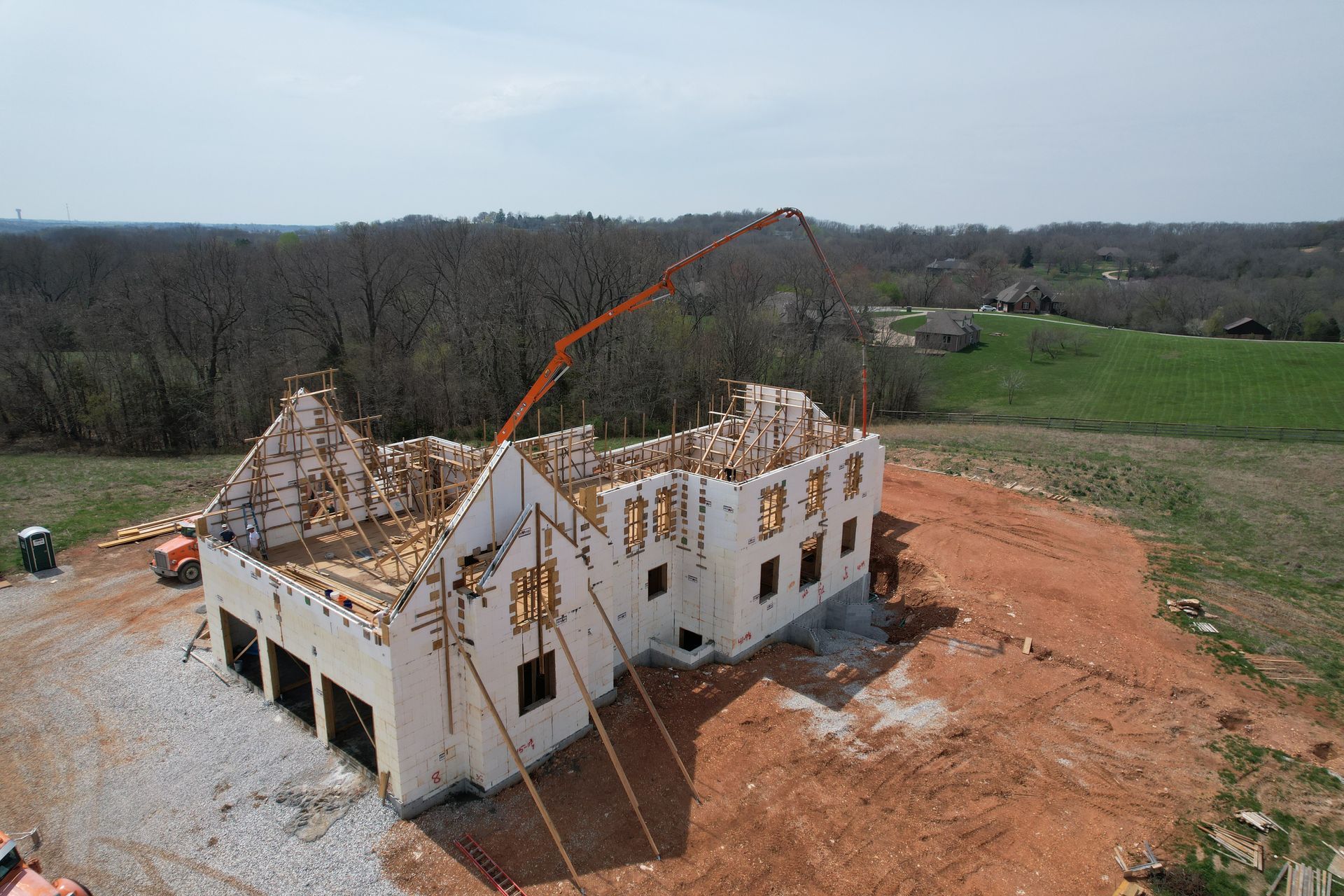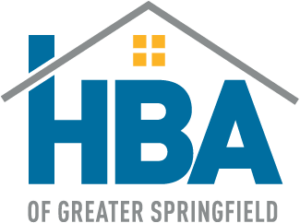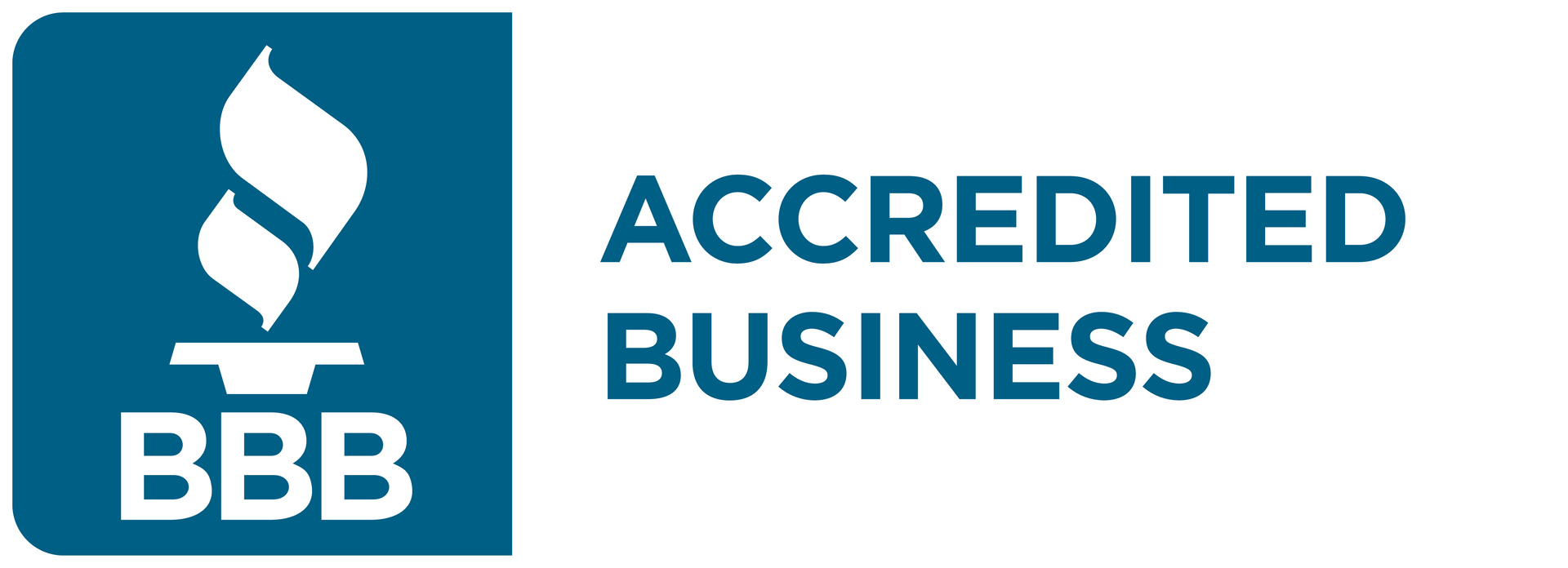An ICF Home is the Answer to Energy Efficiency
An ICF home is dramatically more energy efficient than a wood-frame home, which equates to considerable savings on monthly energy bills. Several factors help with the efficiency and sustainability your home can provide, including R-value, airtightness, and thermal lag. As a company, we have also decided to implement additional energy saving options. These include radiant floor heating and solar panels.
R-Value
The R-Value of a home plays a tremendous role in maintaining efficiency. In short, R-value refers to the capacity of insulating material to resist heat flow. This is a large concern when it comes to heating and cooling your home. Thermal bridging allows heat to escape to the outside during the winter, making your utilities work harder to keep your home comfortable. During the summer, heat has an easier time making its way inside, causing your air conditioner to turn on and off increasingly. Forbes reports most Americans pay an average of $429.33 per month for their utility bills. Wouldn’t you like to drastically decrease your estimated utility costs with your new home?
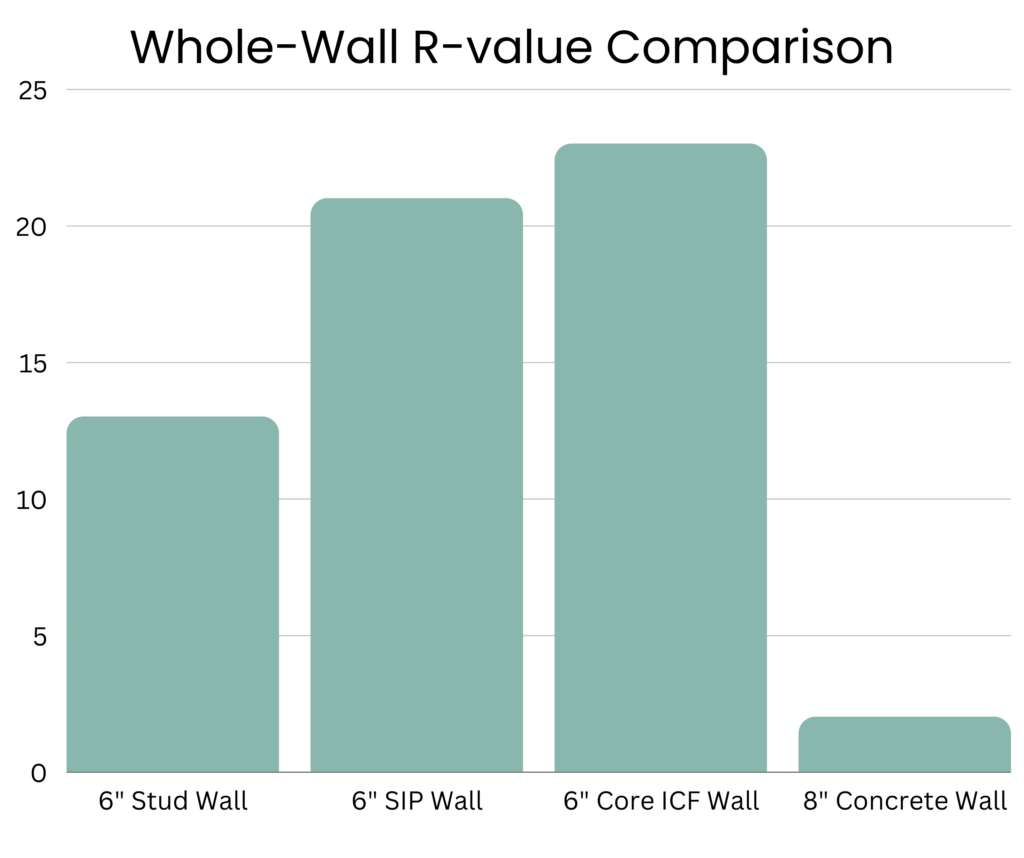
Independent testing proves that ICF walls have 58% better R-Value than the highest quality wood-frame home. The R-value of our walls is R-23. The R-value of the highest-quality conventional stud walls ranges from R-14 to R-19. How can we boast that our R-value is 58% more when our thermal resistance is not much higher nominally?
Wood-frame homes fall victim to thermal bridging, the movement of heat across an object that is more conductive than materials around it. A conventional build allows heat an easy escape route from the inside of your home. Due to this, these homes consistently perform lower than their nominal R-value. However, an ICF home has a performance value of R-50. The continuous insulation on both the outside and inside of our walls removes the threat of thermal bridging and drastically increases the efficiency your home will achieve.
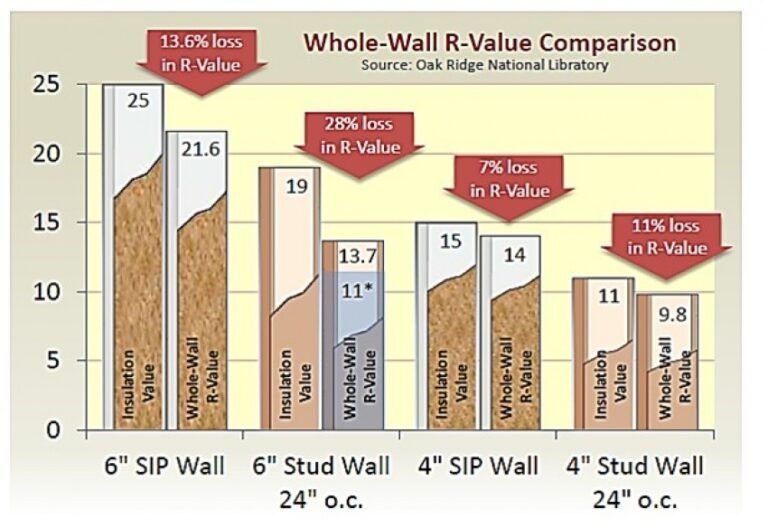
Airtightness
Another way heat can escape your home is through convection, or heat transfer, in this case, via airflow. Convection allows the outdoor climate to find its way into your home through cracks in the shell. The more airtight a home is, the more energy efficient it will be. Even the highest quality wood-frame home does poorly when it comes to controlling airflow. When we build a project, the walls are a continuous pour leaving no cracks or crevices. We also use a system that provides a monolithic pour between your footing and walls, furthering the airtightness of your project. ICF homes have an average airflow of 1.26 Air Changes per Hour (ACH).

Thermal Lag
Thermal Lag also plays a part in providing you a sustainable home. This refers to the rate at which heat is absorbed and released by a material. Thermal lag will help keep your indoor temperature consistent while the outside temperature changes.
A study completed by Cleb Laboratory Inc. shows a wood-frame chamber requiring a heater to come on as soon as the outdoor temperature dropped. The ICF chamber was able to maintain it’s temperature for 50 hours before the heater had to switch on. This ICF chamber took over 13 days to reach a “steady state”, meaning the heater had to run continuously. The wood-frame chamber took only 60 hours, consuming 149% more energy than an ICF wall.
Additional Energy Efficient Home Features
Choosing to build with ICF will increase the amount you spend on your project (As of July 2023, we have yet to see the difference be more than 10%), however, an average size home can make the difference back in utility savings in 3-4 years. We take this a step further by recommending additions to your plans that will decrease your utility cost more. With our Legacy System, there are 3 different contracting options. These options allow you to add on radiant floor heating and/or solar energy to increase your efficiency.
We love to provide our homeowners with a slab on grade foundation that includes radiant floor heating. This system heats your home by pushing water through tubing in your floor. Your home will be heated from the feet up, preventing air duct loss.
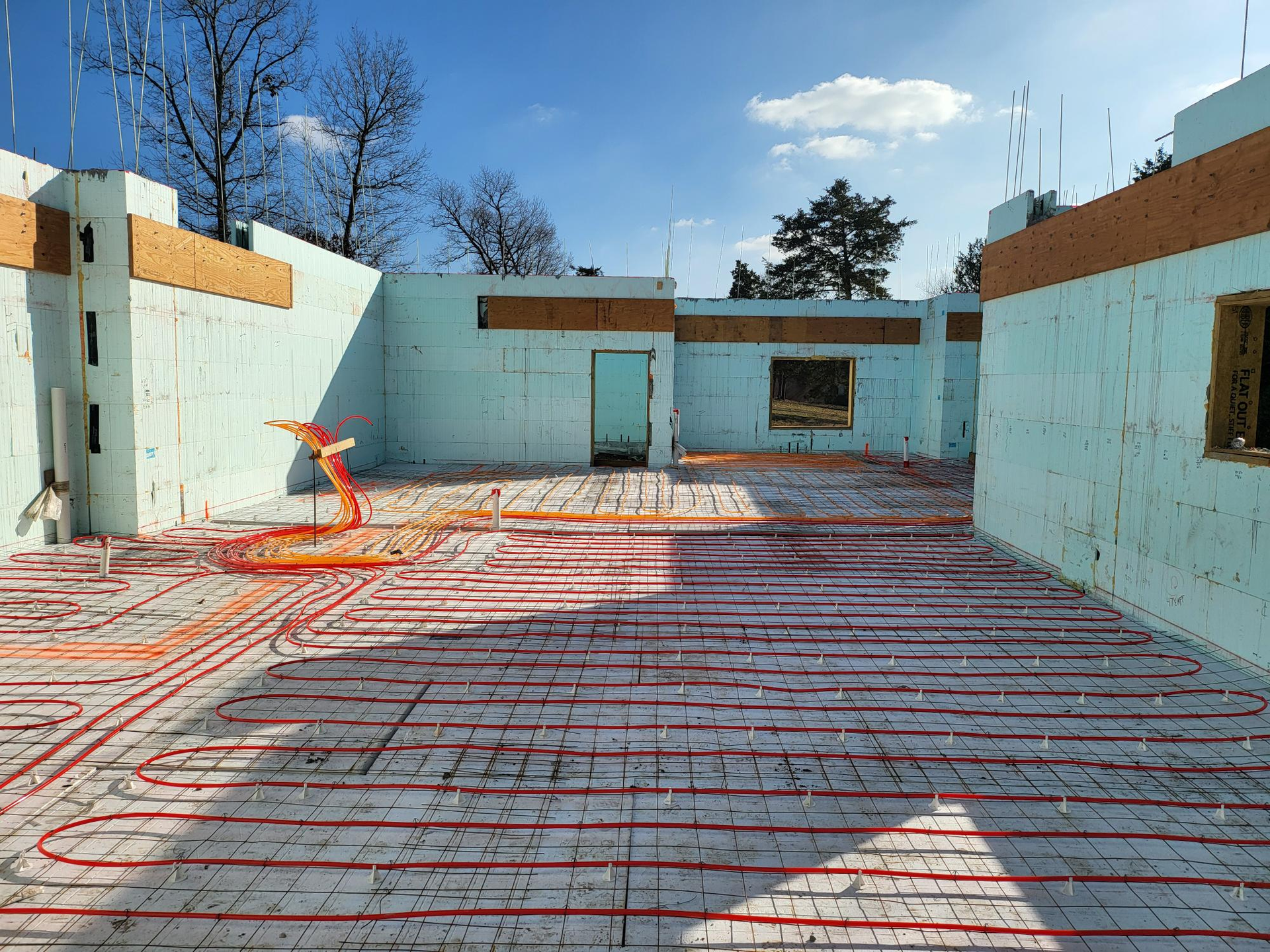
Another great addition to this is the installation of solar panels. David Samples, co-founder and owner of ICF Walls of the Ozarks, averages a $10/monthly utility bill.
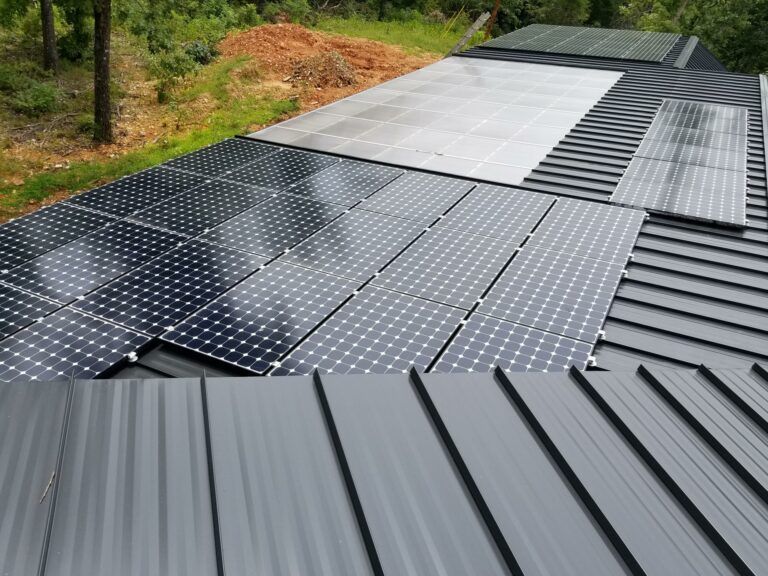
Insulated Concrete Form construction offers you the sustainability and resiliency to stand the test of time, while saving you money in the long run.
With continuous insulation on the interior and exterior of your home the R-value, airtightness, and thermal lag of ICF homes cannot be beat.
If you would like to experience these percentages in person to further prove that ICF homes are the best choice efficiency-wise, book a home tour with us. We love to provide visual proof of ICF construction!
